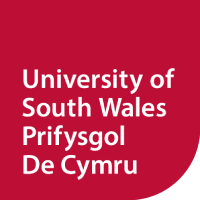About the Project
This is an exciting opportunity to undertake research alongside our partners in the livestock feed industry, which could lead to a reduction of antibiotic use in the pig meat supply chain.
The selected candidate will apply their microbiological skills to test and develop antibiotic alternatives. This PhD project will allow the student to develop transferable knowledge and skills in this exciting field of research.
This Knowledge Economy Skills Scholarship (KESS 2) project will be held in the Faculty of Computing, Engineering and Science at the University of South Wales. KESS 2 is a programme funded by the European Social Fund (ESF) awarded by the Welsh European Funding Office (WEFO) in the Welsh Government. The project will focus on testing and developing novel alternatives to antibiotics for pig husbandry by providing an evidence base that will lead to a reduced dependence on antibiotics.
The project is backed by Feed, Food & Future ltd, who have a wealth of experience in many aspects of development, manufacture, marketing and business strategy in the animal feed sector.
Programme of research:
The project aims to develop products which will reduce the dependency on medicinal antibiotics in pig farming as part of the solution to tackling the global challenge of antimicrobial resistance.
Existing commercial products, and a range of novel potential candidates, will be tested for their antimicrobial activity against microorganisms of concern in pigs. The student will undertake microbiological testing against pig pathogens in order to develop evidence-based recommendations to the industry on the most appropriate products, which is currently lacking.
Novel candidates identified by Feed, Food & Future will also be subjected to microbiological testing to provide evidence to support the development of next generation feed products.
Antimicrobial testing assays will be used to compare existing and novel candidates to the antibiotics currently used in the pig industry. Promising candidates will be further characterised by investigating their mode of action and toxicity. The potential of novel candidates to cause cross-resistance to antibiotics commonly used will be investigated, which will include work on the development of resistance in the pig meat supply chain.
Studentship:
The studentship will cover the fees for a full-time PhD programme and pay a stipend of circa £14k p.a. There is also around £9k project support costs available for consumables, travel, minor equipment, training (including the KESS Grad School) and conference attendance.
The position is available from 1st January 2019.
Eligibility of Student:
To be eligible to hold a KESS studentship, you must:
• have a home address in the Convergence area (details below)* at the time of registration.
• have the right to take up paid work in the Convergence area* on completion of the scholarship.
• be classified by the University as ‘home’ or ‘EU’ for tuition fees purposes according to the University’s guidelines.
• satisfy University of South Wales’s admissions criteria: see below, qualifications and experience and application process
*The Convergence area covers West Wales and the Valleys, and is made up of the following 15 local authorities: Isle of Anglesey, Gwynedd, Conwy, Denbighshire, Ceredigion, Pembrokeshire, Carmarthenshire, Swansea, Neath Port Talbot, Bridgend, Rhondda Cynon Taf, Merthyr Tydfil, Caerphilly, Blaenau Gwent and Torfaen.
Qualifications and experience:
Eligible applicants will:
• Have a degree (2i or higher) in an appropriate biological discipline with strong microbiology experience.
• Possess practical experience of appropriate sterile technique and the isolation of microorganisms within a biosafety level 2 laboratory.
• Have experience and knowledge of the testing of antimicrobial compounds and defining minimum inhibitory concentration by broth microdilution or disk diffusion assays.
• Be highly self-motivated, with capacity to learn and develop techniques required for the project.
• An understanding of antibiotics and the development of antimicrobial resistance.
• Have well-developed and positively collaborative interpersonal skills.
• Have an ability to deliver technical reports and communicate findings.
• Be willing to travel and work in industrial settings with Feed, Food & Future.
Application Process:
To download an application package, please visit: http://gro.southwales.ac.uk/studentships/KESSII/participant/
For any queries on eligibility, please contact: KESS Team at Research and Innovation Services, University of South Wales: [Email Address Removed] Tel: 01443 482578
For informal enquiries or further programme information, please contact: Dr Cerith Jones ([Email Address Removed]).
Further information at:
http://staff.southwales.ac.uk/users/10647-cjones23
Closing date for applications: midnight Wednesday 29th November 2018

 Continue with Facebook
Continue with Facebook

